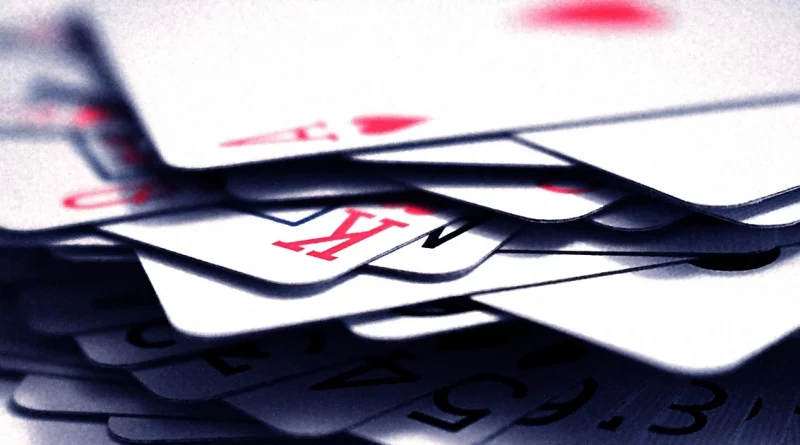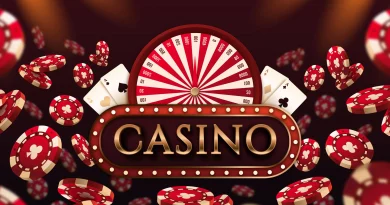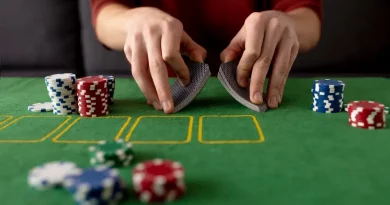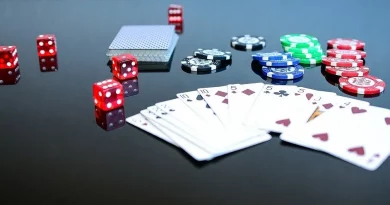The history of gambling
Gambling is one of the oldest human activities, as evidenced by writings and artifacts discovered in tombs and other archaeological sites. It has been regulated, usually with strict limitations, in ancient China, Rome, the Jewish Talmud, as well as by Islam and Buddhism. In ancient Egypt, chronic gamblers could even face forced labor in quarries as a punishment. The origins of gambling are believed to be rooted in divination, where people sought knowledge of the future and the intentions of the gods by casting marked sticks and interpreting the outcome. From there, it was a natural progression to place bets on the results of these casts.
Gambling origins
References to casting lots for the division of property can be found in the Bible. One famous example is the Roman guards casting lots for Jesus’ garment during the Crucifixion, mentioned in all four Gospels. This event has been used for centuries as a cautionary tale by those opposing gambling. However, in ancient times, casting lots was not seen as gambling in the modern sense, but rather as a way to accept inevitable destiny or fate.
Anthropologists have observed that gambling tends to be more prevalent in societies with a strong belief in gods and spirits, whose favor and benevolence may be sought. The casting of lots, often involving dice, has been used in many cultures to administer justice and identify criminals during trials. As late as 1803, Sweden employed such means to dispense justice. Interestingly, the Greek word for justice, “dike,” is derived from a word meaning “to throw,” about the act of throwing dice.
Playing cards in China
The majority of historians concur that the earliest playing cards originated in China around the 9th century, though the specific rules of the games they were used for remain a mystery. Some theories propose that these cards served as both the game tools and the betting stakes, similar to present-day trading card games enjoyed by children. Other theories postulate that the initial packs of cards were paper versions of Chinese dominoes. The cards utilized during this period certainly bear minimal resemblance to today’s standard 52-card decks both in their form and function.
Baccarat appears in Italy & France
Baccarat, a two-player card game, is considered the oldest game still played in contemporary casinos. Its first references date back to the 1400s when it spread from Italy to France. However, despite its early origins, it underwent several centuries of modifications and transformations before evolving into the form we recognize today. While various versions of the game have emerged and faded, the standard variant played in casinos worldwide is believed to have originated from Cuba, reaching the United States via Britain, with minor tweaks to the rules throughout its journey. Today, baccarat is more akin to a spectator event than an active game but remains a staple in nearly every casino due to its appeal among high-stakes gamblers.
How blackjack have changed?
Blackjack possibly dates back to a 1601 Spanish game called “Ventiuna“. Some argue it might stem from the 1570 game ‘trente-un’ or even an earlier French game called ‘quinze’. The creators often go unmentioned in historical records. The modern game likely evolved from the 17th-century French game ‘vingt-et-un’. French settlers brought this game to the US. The term ‘blackjack’ is an American invention. It ties back to Nevada casinos’ promotions in the 1930s, offering 10 to 1 odds for a winning hand with a blackjack and an Ace of Spades. This special offer didn’t last, but the name ‘blackjack’ did.
The first casino in Italy
The early 17th century marked the emergence of the first gambling houses in Italy, comparable to modern-day casinos. The Ridotto, established in Venice in 1638, served as a controlled gambling hub amidst the yearly carnival’s chaos. As the 19th century rolled in, casinos began popping up across Europe, whereas in the US, less formal gambling establishments were popular. Prosperous traders and farmers often participated in casual gambling on steamboats traversing the Mississippi River. Presently, the image of the Las Vegas Strip dominates our conception of casinos, a development that emerged from America’s Depression.
Roulette for the first time in Paris
The game of roulette, as we understand it today, originated from the gambling houses of Paris. Here, players were first introduced to what is now known ironically as the ‘American Roulette’ wheel. It wasn’t until half a century later that the ‘European’ version of the game, featuring a single green zero, emerged. This version was a relief for many roulette enthusiasts. As the 19th century evolved, so did the game’s popularity. Its fame leaped when the renowned Monte Carlo casino adopted the single zero version. This adoption spurred its spread across Europe and much of the world, though the Americans held on to their original double zero wheel format.
Poker makes first appearance
It’s hard to pin down the precise origin of poker – as with a lot of the games mentioned here, poker seems to have grown organically over decades and possibly centuries from various card games. Some have poker’s antecedents coming from seventeenth-century Persia, while others say that the game we know today was inspired by a French game called Poque. What we do know for sure is that an English actor by the name of Joseph Crowell reported that a recognizable form of the game was being played in New Orleans in 1829, so that is as good a date as any for the birth of poker.
The growth of the game’s popularity was fairly sluggish up until world poker tournaments started being played in Vegas in the 1970s. However, poker exploded with the advent of online poker and televised events allowing spectators to see the players’ hands. When amateur player Chris Moneymaker qualified for and won the 2003 World Poker Championship after qualifying through online play, it allowed everyone to picture themselves as online poker millionaires. – napisz swoimi słowami w 100% oryginalny tekst, możesz wykorzystać swoją wiedzę.
One-man army – Bandits appear in New York
The slot machines we recognize today were first conceptualized by Sittman and Pitt in New York. They developed a machine that used the 52 cards on drum reels to create a sort of poker game. Around the same period, the Liberty Bell machine was created by Charles Fey in San Francisco. This machine was notably easier to regulate, sparking the start of significant progress in slot gaming. The continuation of bell symbols in today’s video slot games harks back to Fey’s early invention. Early machines dispensed cigars and gum, not money. However, the cash-dispensing models soon became ubiquitous in bars and casinos worldwide. The invention of the first video slot in 1976 laid the groundwork for the online video slotting we engage with and enjoy today.
First regulations in countries on gambling
Numerous local and national jurisdictions either prohibit gambling or stringently regulate it by granting licenses to providers. This often results in the emergence of gambling tourism and illicit gambling activities in regions where it is outlawed. The role of governments in supervising and taxing these practices has cultivated a strong relationship between many governments and gambling institutions. In areas like Monaco and Macau, China, legalized gambling contributes significantly to government earnings.
It’s typical for laws to mandate that odds offered by gambling mechanisms be statistically random. This prevents providers from making certain high-reward outcomes unattainable. Since these payouts are tied to very low probabilities, any bias built into the game can often go unnoticed unless the mechanisms are thoroughly inspected.
Most regions that permit gambling stipulate that participants must meet a specific minimum age requirement. The age limit often varies based on the type of gambling activity in question. For instance, in many U.S. states, individuals must be at least 21 to set foot in a casino, but they may purchase lottery tickets on their 18th birthday.
Insurance
Insurance contracts and wagers have several similarities, yet they are legally differentiated because stakeholders have an interest in the outcome of the “staked” event beyond its specific financial implications. For instance, engaging in a “bet” with an insurance company about whether a house will catch fire is not considered gambling, but protection, as the homeowner has an evident concern for their home’s longevity, setting aside the financial aspects of the “wager” (i.e. the insurance policy). Nonetheless, both insurance and gambling contracts are usually perceived as random contracts under many legal structures, but different regulatory frameworks govern them.
Asset recovery
Under common law, especially English Law (English unjust enrichment), a gambling contract might not provide a casino with bona fide purchaser status, thereby allowing the retrieval of stolen funds in certain cases. In the case of Lipkin Gorman v Karpnale Ltd, in which a solicitor gambled with stolen funds at a casino, the House of Lords overturned the High Court’s prior decision, ordering the casino to refund the stolen funds excluding those subject to any change of position defense. U.S. Law has similar precedents.
FAQ
Under English common law, gambling contracts might not provide a casino with bona fide purchaser status. This could potentially allow for the recovery of stolen funds involved in such contracts.
This landmark case set a precedent for the retrieval of stolen funds gambled at a casino. The House of Lords ruled in favor of retrieving the funds unless the casino could prove a change of position defense.
Evidence shows that one of the earliest forms of gambling involved casting lots, a practice referenced in ancient texts like the Bible and the works of Greek philosophers.
Technology has revolutionized gambling by enabling the creation of slot machines, digital games, online casinos, and sports betting platforms, broadening the scope of the industry like never before.
Societal attitudes towards gambling have varied over time and across cultures, ranging from permissive acceptance to moralistic condemnation. Today, many societies accept regulated gambling as a valid form of entertainment.




